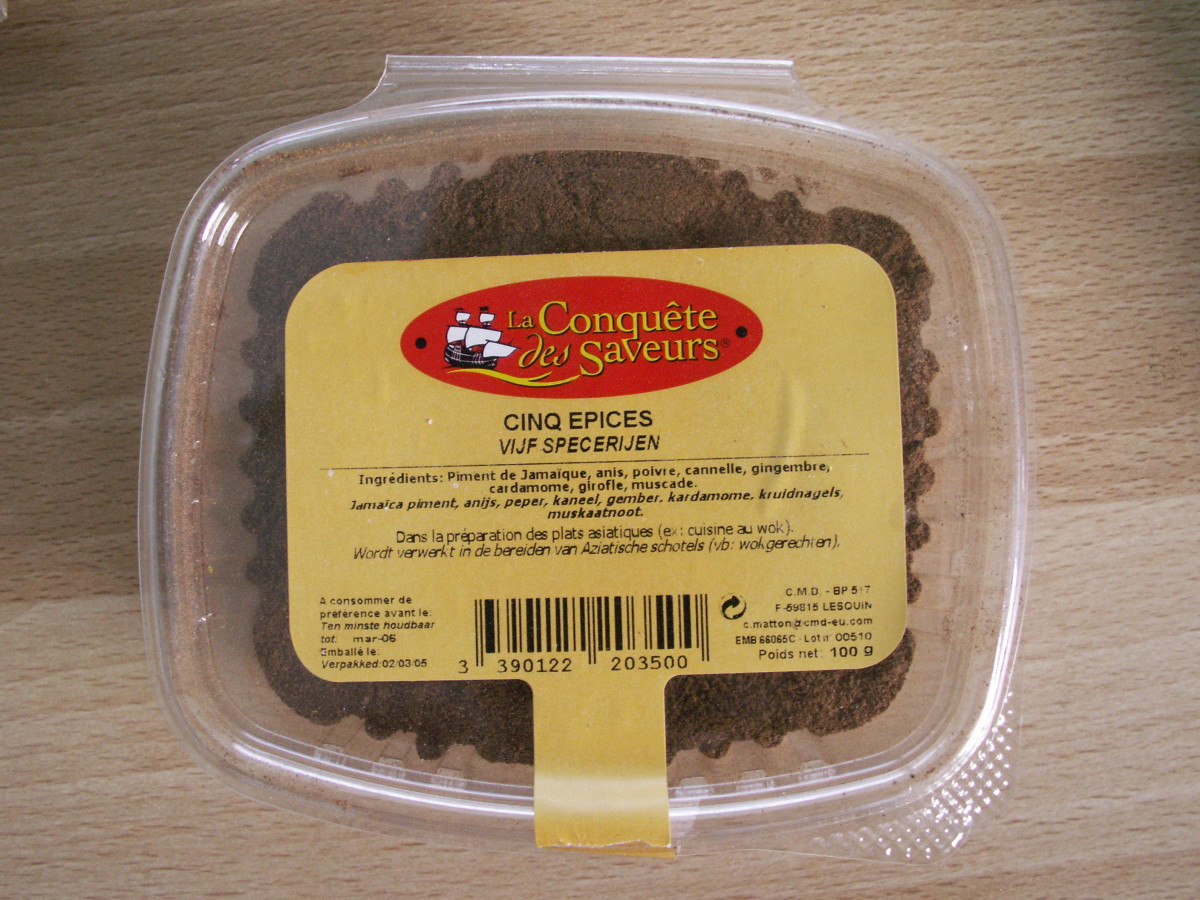How To Spice Up Your Health
Aromatherapy of a Different Kind
Aromatic herbs and spices provide natural health benefits when used in the regular human diet. Five simple, easily attainable herbs that significantly impact health are discussed below and their health benefits are highlighted. These are followed by a recipe for a wonderful Curry Powder you can make yourself, using all of the 5 aromatic herbs.
Pamper yourself with exotic curry and spices, be rejuvenated, and boot your health. It is not expensive, and will save health care dollars in the long run.
Plant an Herb Garden

CINNAMON
Cinnamon is made from the bark of a tree and has been a very valuable spice in the past. In addition to aroma and taste, this spice also presents health benefits, especially in the reduction of blood pressure levels and blood sugar levels. The bark form which cinnamon is extracted is also well known for its powerful anti-bacterial and anti-fungal properties.
At the Human Nutrition Research Center, researchers learned that when individuals having Type-2 Diabetes ingested less than 1/2 teaspoon of cinnamon daily, they showed significant reductions in blood sugar levels. Cinnamon also caused substantial decline in cholesterol and triglyceride levels. This suggests that cinnamon can be used as a prevention and treatment in at least some cases of hypertension and diabetes.
In 2008, scientists in Spain reported finding that after they treated the very packaging materials used to wrap bread and pastries - with cinnamon oil – they were able to extend the freshness of bread and other bakery items by a large amount of time.
The cinnamon-treated wrappings and boxes prevented a full 96% of possible mold growth in the bread for as long as 10 days. Cinnamon has been used in embalming in some ancient cultures for centuries and so it is reasonable to accept the fact that this spice can prolong the physical state of fresh bread as well.
GARLIC
Garlic and onions are used in many dishes in Korea and other Asian nations to good taste and good heart, especially when combined with onions and hot peppers. In fact, garlic often lowers the blood pressure and increases heart health – even more when combined with the onions and peppers.
In 2007, examiners at the University of Alabama at Birmingham found that garlic causes the body's red blood cells to release hydrogen sulfide. This is a chemical that, in turn, causes the dilation (opening) of the blood vessels to increase circulation. This is a very useful effect form a kitchen herb.
An amount equal to two cloves of fresh garlic even caused 72% relaxation in the arteries of mice or rats. Relaxing the blood vessels is the first step to reducing blood pressure and increasing cardiac health overall. The lower number of a blood pressure reading is the Diastolic Blood Pressure, which is the pressure found when the blood vessels are at rest, as in between heart beats – The higher this number, the more tense are the blood vessels.
Regular use of dietary garlic can lower total cholesterol and triglyceride levels at the same time it raises the “good” high-density lipoprotein (HDL) cholesterol. This aromatic (some would say “smelly”) herb protects the heart in another way as well - interfering with the clotting of the blood to a healthy extent. This can reduce the risk of heart attack and stroke produced by blood clots.
ORGEGANO
Oregano is a well known tasy spice that gives Italian food and particularly pizza a zippy flavor. However, it is important for its strong anti-inflammatory properties when added to the diet. In a previous Hub, I spoke to the point of inflammation in the body being a Cardiovascular Risk Factor. Inflammation is associated also with arthritis and other auto-immune diseases and conditions.
The Proceedings of the National Academy of Sciences publication released the facts that oregano's active ingredient is beta-caryophyllin that is also present in basil, rosemary, cinnamon, and black pepper. Using this total of 5 anti-inflammatory spicies can increase the human body’s health. In the article mentioned above, scientists gave oregano’s beta-caryophyllin compound to mice that had inflamed paws. When they did this, the paws’ swelling reduced significantly in 70 percent of the animals. Oregano casued the swelling and inflammation to decline.
Researchers found that the active ingredient in oregano can be beneficial in the treatment of inflammatory disorders, especially those of the gastrointestinal system.
Oregano is also proven to have clear antibiotic properties. Researchers at Georgetown University Medical Center in Washington, D.C. found that oregano oil works as well in fighting infections as some antibiotic medications on the market. The researchers tested the oregano on staphylococcus bacteria, which are increasingly drug-resistant today. Even in low doses, oregano oil blocked the growth of these bacteria as well as some antibiotic drugs are able to do.
ROSEMARY
Much like oregano, rosemary is a much unused spice that provides health benefits you may not have realized. Scientists at Kansas State University revealed that their studies found that compounds in the rosemary they examined can block the formation of carcinogens in meat cooked at high temperatures. Thus, by seasoning meat with the aromatic herb rosemary before cooking it at a high temperature, cancer-causing agents can be stopped from forming in the food. Researchers placed rosemary extracts onto the surface of ground beef before cooking it. They found a 30% to 100% reduction in the production of the cancer-causing heterocyclic amines in this meat. Rosemary could make meats, al least red meats, safer to consume.
Spices in Morocco for Curry

CURRY INGREDIENTS
Curries can include a great many different species, but some are more useful in increasing health than others.
Curries often contain the compound curcumin in the turmeric used in the mixture, and curcumin is most important.
Curcumin reduces the risk of developing Alzheimer's Disease. Curcumin seems to work by triggering immune system cells to consume the plaques that clog the brain.
In February 2008, medical scientists working at Toronto General Hospital found that curcumin used in the diet can powerfully reduce the risk of congestive heart failure. Further, curcumin can help increase the healthy function of diseased hearts by reducing scarring and inflammation already present. In this way, it helps a heart to heal.
We are pretty well convinced that a curry-rich diet is helpful to those with Alzheimer's and Cardiovascular diseases, but curcumin can be used for other ailments as well. Scientists think it may be able to stop the rabid multiplication of cancer cells and are working with this in 2008.
The University of Texas found that curcumin placed into samples of melanoma skin cancer killed more cancer cells the more of the curcumin was put into them. Curcumin has also killed colorectal cancer cells in other studies and reduced the growth of prostate tumors in mice in still others. Curcumin is a very promising hope for health in the future and may prove vital in reducing health care costs and suffering.
Cook Time
MAKE YOU OWN CURRY POWDER BLEND
You can make your own curry powder for regular use by including some of the generally accepted ingredients in popular curries and ensuring that you use the aromatic herbs listed above.
Experiment and see what you like - you don't have to use all of the herbs in this article if their combined flavor does not please you.
.
.
Alton Brown’s Suggested Ingredients + Some Suggestions
The measurements here are for ground spices and herbs, not whole ones. Experiment with the proportions until you find a mix that you like best. For example, you may want to eliminate the mustard or the cayenne pepper, or not. I have found that Mexican Oregano is too strong for the mix, and have used the Italian variety instead. Sometimes I leave out the cumin and use black pepper instead, and other times I use both. Keep your curry powder in a tightly sealed container and use within 6 months.
INGREDIENTS
In a large bowl, mix:
- 1 Tablespoon cumin
- 1 Tablespoon cardamom
- 1 Tablespoon coriander
- 1/4 Cup ground turmeric
- 1 Tablespoon dry mustard
- 1 teaspoon cayenne pepper
Then add any or all of the following additions:
- 1 Tablespoon minced garlic or 2 teaspoons garlic powder
- 1 Tablespoon cinnamon
- 1 Tablespoon oregano
- 1 Tablespoon rosemary
- 1 teaspoon black pepper, optional
> I also like to add 1/2 teaspoon white pepper.











